Coach Kelley Hester took over the Furman women’s golf program in 2012. She has since brought the winning tradition back to the program with 2 wins this fall at the Golfweek Program Challenge and the Furman Invitational. The team also finished ranked 26th in the Golfweek rankings. She sat down with Recruit PKB College Consultant Brandi Jackson to discuss her coaching philosophy and advice to junior golfers and parents going through the recruiting process. Check out part 1 of the interview.
What do you love about being a college coach?
Well I loved college golf as a player. I mean I loved every minute of it so much that I graduated in four years and stayed for a 5th year because I red-shirted my first year. So I love helping kids have a great college golf experience, the opportunity to help kids navigate through that process and have a great college experience. The time that you spend in college is huge, 18-22 are extremely pivotal years and I just love college-age kids. I love college golf and I think it’s a great experience, I think that it should be the best 4-5 years of your life and to get to be a part of that is what gets me going.
What is your own coaching philosophy?
Part of my mission statement in life is to help kids navigate this time in their life successfully and sometimes that involves winning and sometimes it doesn’t. But part of my philosophy is to really help kids make the most out of their journey through college whether it’s golf specific, academically, spiritually, emotionally, so I think that we try to create an environment where kids can be successful whether it’s on the golf course or off. And if it is just on the golf course then I haven’t done my job, it’s trying to tile that together so that’s my philosophy: creating an environment where kids are going to be successful. And there have definitely been times where my juniors and seniors have checked out a little bit. Maybe they came into school thinking about professional golf but by the end they want to do something else with their life and you know you have to take the good with the bad. You have to be okay with that if you’re trying to help kids have this great experience and figure out who they are. You have to be prepared for the fact that maybe it’s not always gonna go in the direction of golf and you know what I’m just as proud of those kids who go on to work for the Spanish Embassy or go to med school or go to law school, or become a dietitian, all these are different areas that I have had kids gone into and I think that is great.
What has helped to take Furman from being a 90th ranked team to inside the top 30?
Facility wise what Furman has to offer is right up there with anybody else, big school/small school. This facility opened an 8 acre short game to be able to show recruits a top notch facility that is just as good as anybody else. Furman academically is a very good school, a very challenging school so for students who are serious about school and about golf, then it’s a great fit. And I feel that we have done a good job of finding the kids that it’s a great fit. I don’t think there is any magic fairy dust, you just love on them and tell them how good they are doing and there are some things mechanically that you help them with. It’s a combination of quite a few things, it’s what made Furman great for a long time, those things are still here, you just have to showcase them to the right kids who want to be a part of something that is bigger than themselves. The history of Furman women’s golf is so impressive and we have been blessed to have Betsy King, Beth Daniel and Dottie Pepper all back on campus this year, interacting with our kids. That’s cool, that doesn’t happen everywhere.
What should junior golfers know about playing at a top ranked D1 golf program?
Well I tell my campers when they come in, because we get all skill levels, that there are lots of levels to play college golf and that if you want to play college golf there’s a place for everyone to play. It may not be where you want to go to in your mind or even what’s going to be the best fit, but there are so many opportunities and options out there. And for a hardcore kid who is totally ok spending just as much time on golf as they do on school then Division I is not a bad way to go, then as you move down the levels maybe school is gonna become more time-consuming and golf a little less time-consuming although there are certainly some extremely competitive Division II and Division III schools that can compete with D1 schools. I think ultimately you need to look at the scoring averages of the players on the team and see where you fit in there and maybe even add a stroke or two for playing in spring and fall weather, longer golf courses, balancing academics. It is very rare for a junior golfer to say that their stroke average went down from junior golf to their freshman year so you may want to inflate a stroke or two when you’re figuring that out but there are great opportunities at all levels. To me, it would be more meaningful to win the national championship at junior college level, or Division II or Division III than to sit on the bench at home.
Being a top ranked golf program, but a smaller “name” school how do you feel that should make a difference in a player’s decision?
I can’t make Furman something it’s not just like I couldn’t make Georgia something it’s not or Arkansas or UNLV or Mercer or any of the places that I’ve coached. So I feel that it’s important to be honest with student-athletes about what your school is and what it isn’t. I want kids to pick my school for the right reasons. So I’m probably not gonna sell Furman to someone is not interested in coming to Furman and when I got here I had to be okay with that. I could sell other universities to anybody because they can sort of be anything to anybody. At the same time, you can’t make a 35,000 student school intimate, that is just not gonna happen. So you know I encourage students to decide what it is that’s important to them and if it’s a match it’s a match and if it’s not then you know I have to be okay with that piece of it. And I have to know that it’s not going to be a perfect fit for everybody. Just like Clemson is not going to be a perfect fit for everybody. So I think that’s part of the job, our job, of recruiting is to find who that’s a good fit for and really go after those kids and encourage them to make the right decision for the right reasons because we certainly see why kids make the wrong decisions for what they think are the right reasons and I’ve gotten pretty good at predicting who will work out and who won’t and where. And sometimes things will go our way and sometimes they don’t but all you can do is put the cards out there. I get crushed when I think it’s a great fit and we don’t get that kid but it happens so I’m not as crushed when I don’t feel like it’s a great fit.
What is the biggest mistake you see players and families make during the recruiting process?
I think that sometimes kids decide too early, they jump the gun, they’re not patient enough. And I think sometimes they go where the money is, as opposed to where their heart is. I think that’s where a lot of transfers come from because they decide when they get there that the money might’ve been better at one place over the other, but what price do you put on your happiness? So I think that at the end of the day, you have to pick a school that you like, that you’re going to enjoy. I think the golf program is extremely important, I mean that’s going to be who you spend most your time, that’s going to be your core group of people and if you decide too early you may not even know who those other people are going to be. So a lot of times we try to fit a square peg into a round hole and vice versa and that’s what I see in junior golf when things just don’t feel quite right but yet you still go through with it because of XYZ. It’s gotta feel right and when it doesn’t and you go that direction and then you’re not happy then you’re usually kicking yourself saying “I knew that something just didn’t feel right” and each person has to decide what those maybe two or three big things are for them and you can’t compromise on those.
What are some of the right or wrongs reasons to pick a school/golf program?
I think if a kid picks a school because they think it’s going to be more fun, you know I think there is fun to be had anywhere. For a real serious golfer maybe they don’t need to go where it’s going to be the most fun. If the academics are going to be a stretch then it’s going to be hard for you to take care of your golf. I’ve seen that here at Furman where a student is in over their head to some degree and it can definitely have a negative impact on the golf. So I think you need to be comfortable academically with the school that you choose, just like you need to be comfortable socially at the school that you choose. And just like the golf doesn’t need to be a stretch. You want to go where you’re going to get to play and I think you probably need to pick a place where you foresee being in the middle of the lineup, meaning you’re going to be able to qualify but you’re not going to be the best player because here’s the deal I’m trying to make my team better all the time so if a student thinks they are going to be in the middle of the lineup, then the odds are probably greater that they’re going to be fighting for that last spot or two. It’s my job to bring in players that are better than the players I currently have. I’d rather compete for Division III national championship rather than to compete for the seventh spot on my college team.
How can parents support without pushing?
I think that it’s important for parents to be okay with their kids making some mistakes at times. I believe that the parents need to encourage the student to reach out to the coaches and let them be in charge of that correspondence and communication. Not that the parent can’t encourage it or even harp on their child to do it because it does need to be done, but it doesn’t need to come from the parent, it needs to come from the golfer. And in terms of visits, it’s certainly standard for the parents to be there and ask questions and communicate during the visit but they really want to encourage the child to shine through. They might or might not be okay with some of the answers but, I mean, it is what it is and ultimately it’s going to come out, whatever it is. And I would even say there are no wrong answers but they need to encourage their child to be balanced and put the cell phone away during the visit and make eye contact, shake hands, communicate. All of those things are harder now that the kids are pretty attached to their cell phones. I’m always impressed when a student does not appear to be attached to their cell phone because I can see in my college kids there’s some dependence there and I encourage them to not feel the need to have a phone on them all the time. If there’s an emergency parents can call me anytime and during practice they need to put the phone away


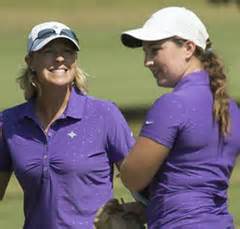
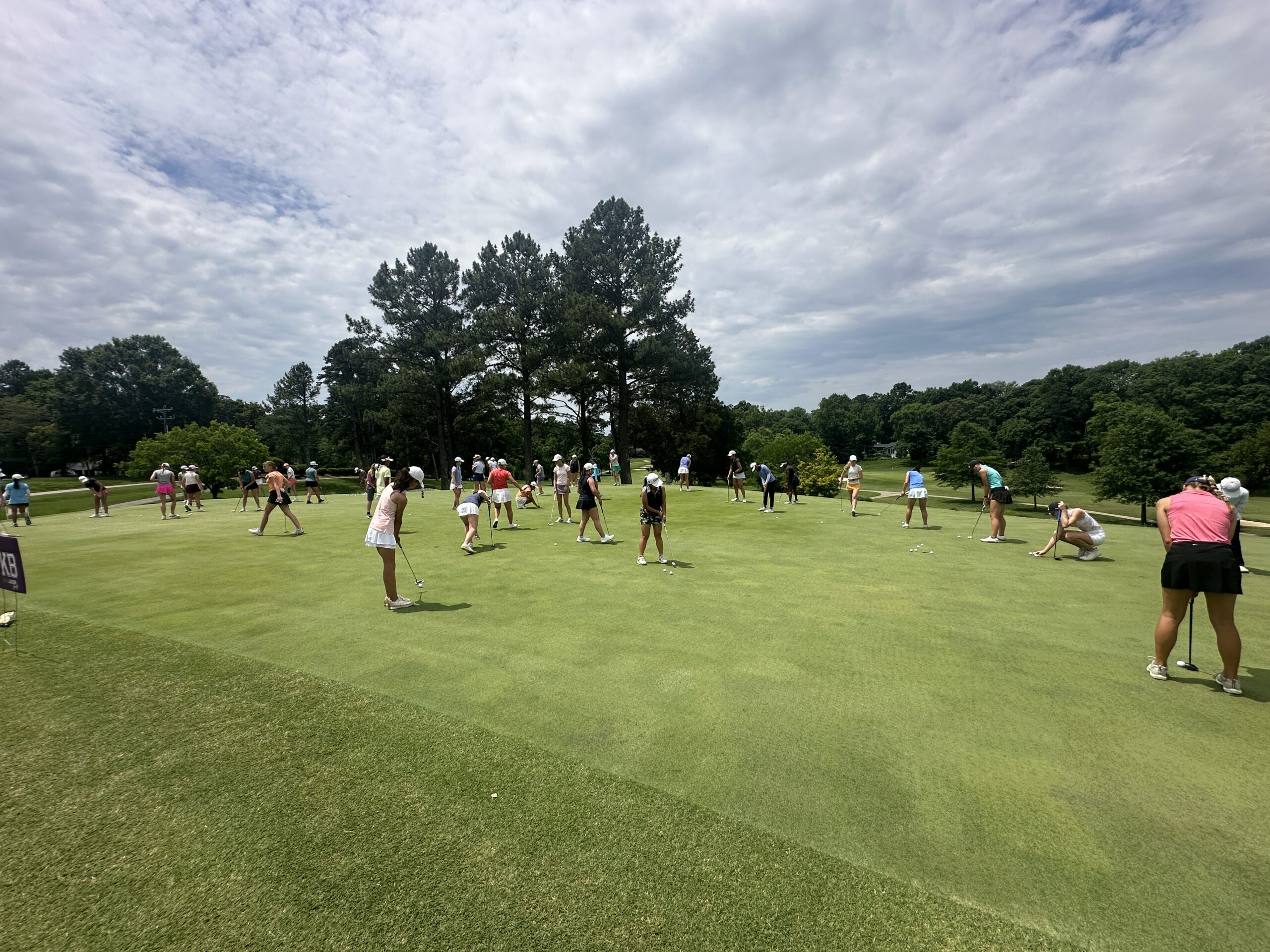
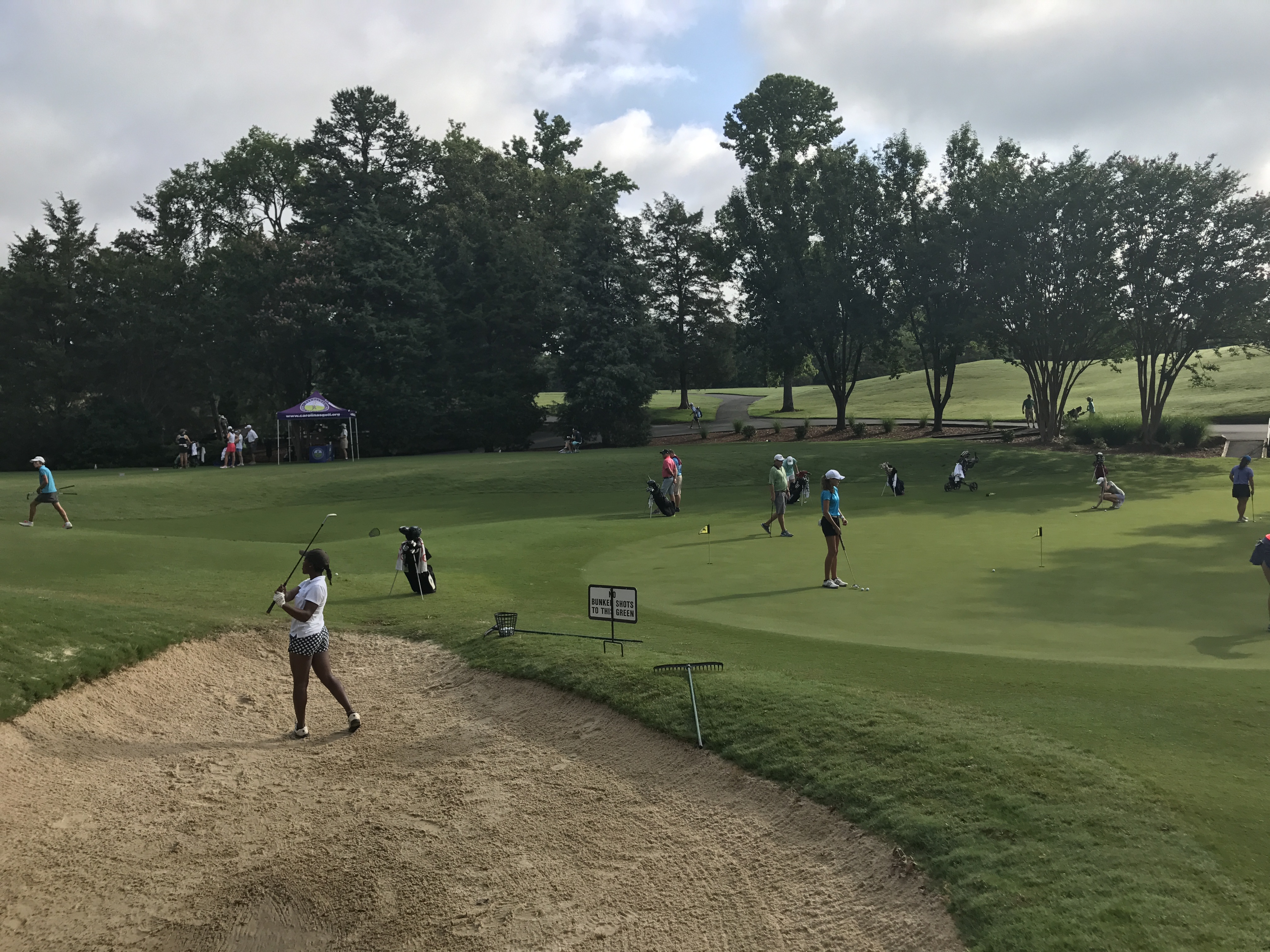
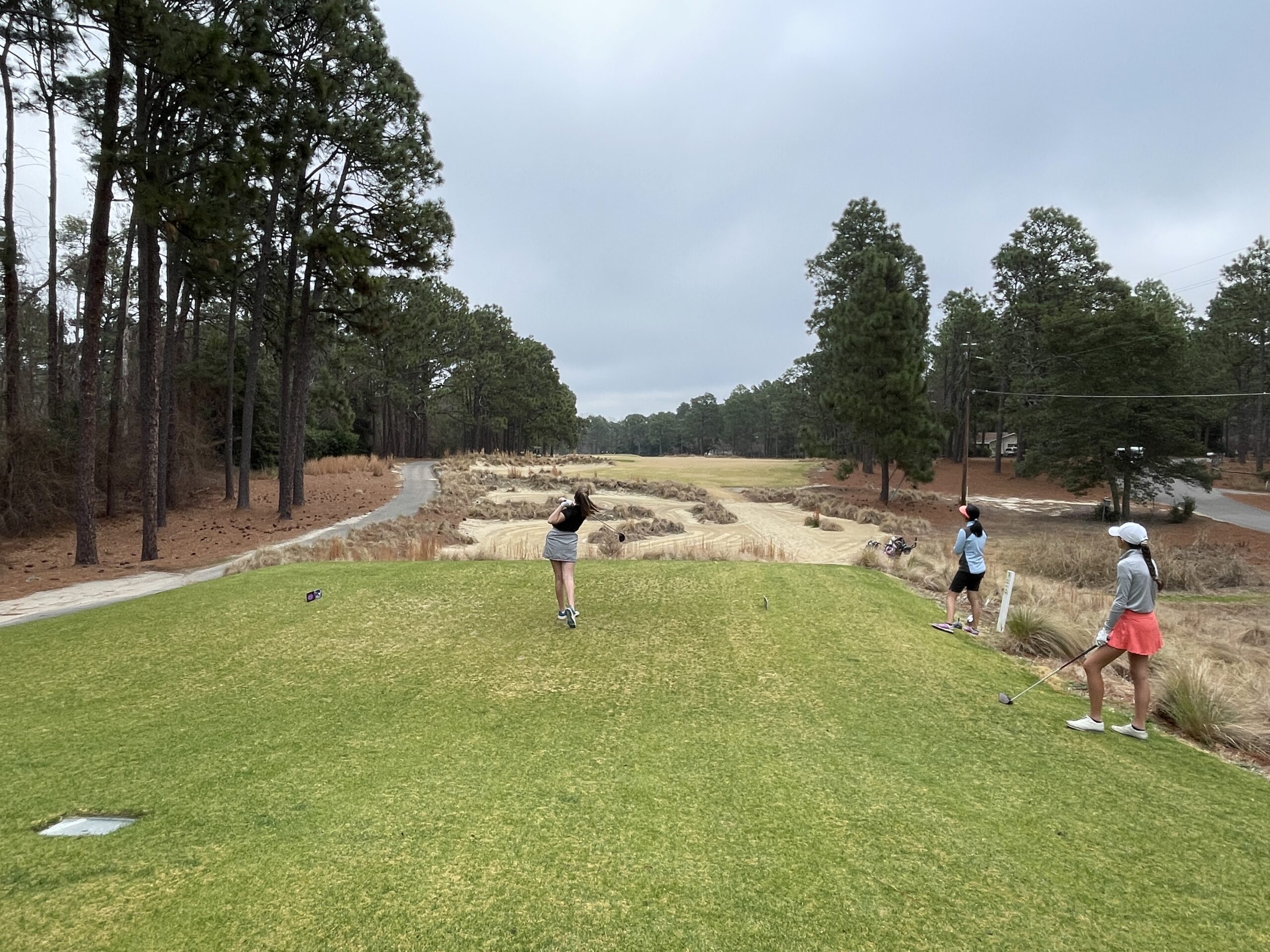
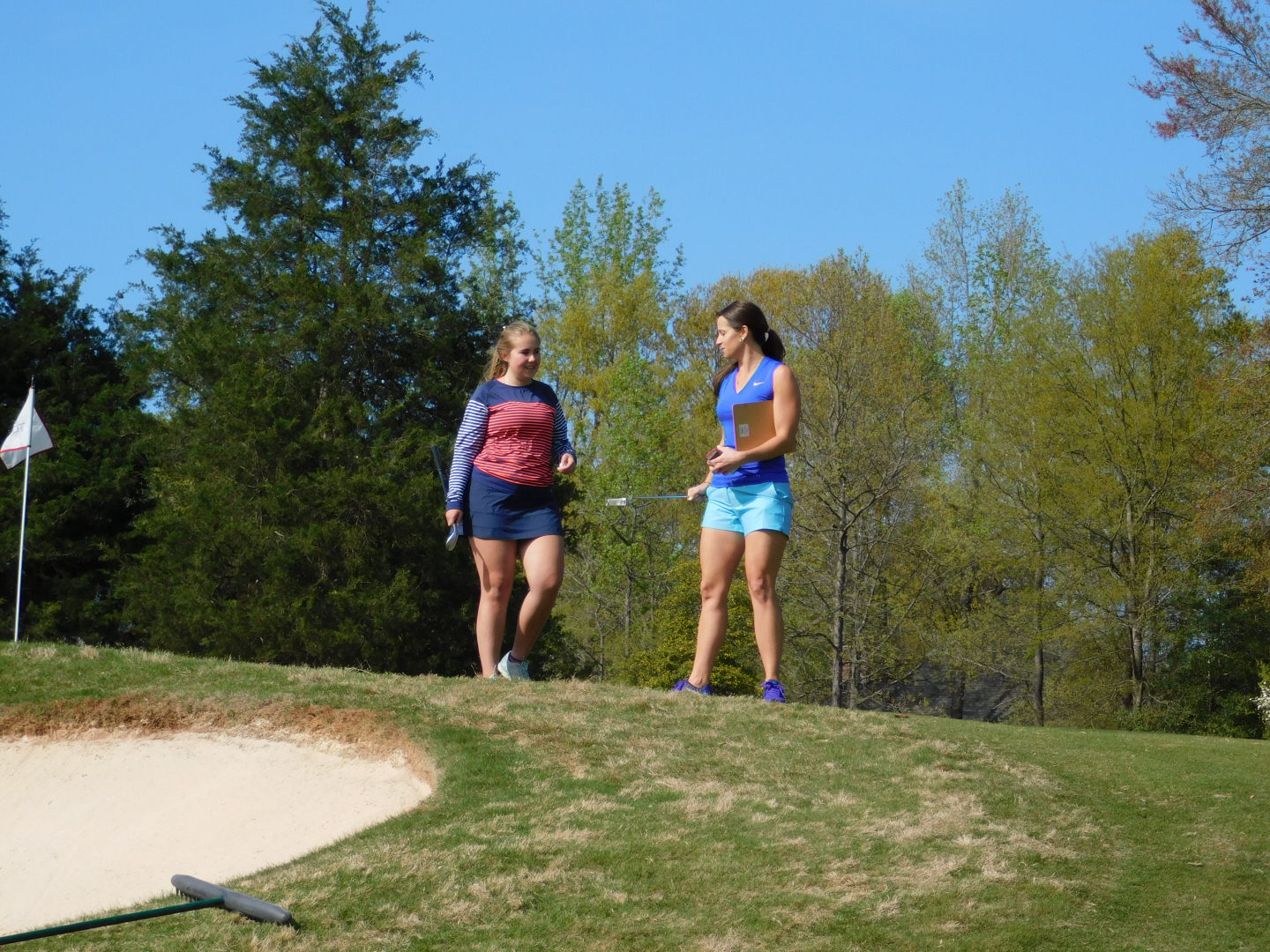

Leave A Comment